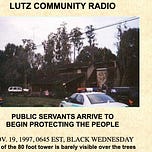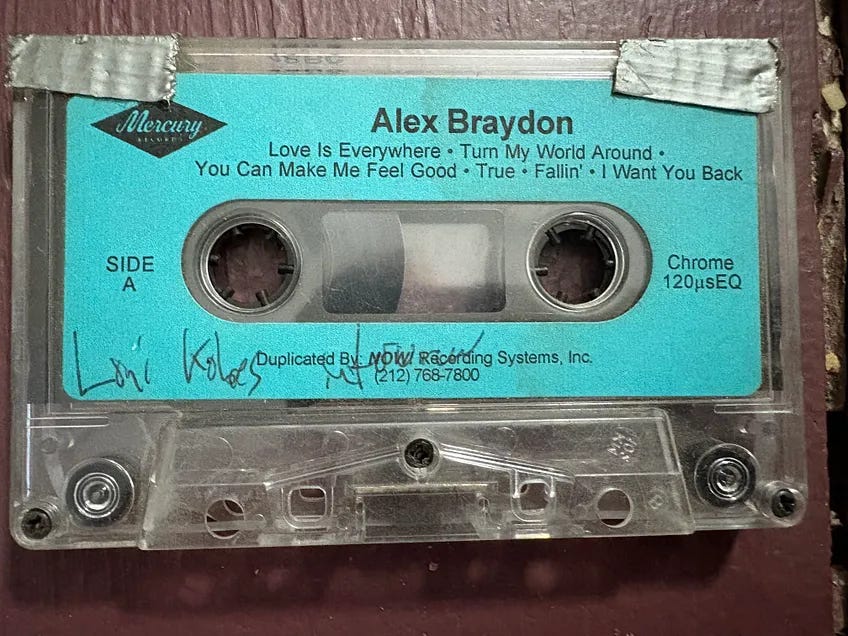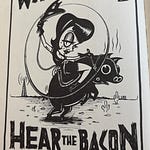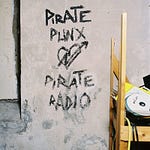Here is an interview with one of the few pirate radio operators successfully prosecuted for taking over a sliver of the nation’s airwaves, Lonnie Kobres.
The context: in October 1997, many low-power pirate radio operators across the country were sharing tactical information and pressuring the Federal Communications Commission to open up the nation’s airwaves. The FCC, at this point in history, did not allow anyone to run a low-powered station, 100 watts or less, when many small stations could be on the air, broadcasting to and with their community. The pirates of the time, thousands of them, were proving their point through civil disobedience, providing community content from previously empty nooks and crannies on the FM dial.
In October, The Wall Street Journal ran a profile, complete with the tiny line-sketch, of Doug Brewer, who ran a pirate radio station called The Party Pirate, and also built and sold small transmitters to pirate stations across the country. The article, on the newspaper’s front page, was a stick in the FCC’s eye. Ralph Barlow, who heads the FCC office in Tampa, was quoted as saying about Brewer in the article, “Sooner or later, I'll nail him.” A month later, at 6 a.m. FCC agents were busting down the doors of Lutz Community Radio, The Party Pirate, and 87X (the station I helped found two years before).
In this interview, shortly after the raid, Kobres describes what happened that morning, before they dismantled his large radio tower:
“I could see the battering ram was starting to move towards the door, and so I opened it to keep our house, keep our property from being destroyed. And when I opened the door, they grabbed me and put me in a foreign-made car, a non-police car, and eventually I was hauled off to jail. And I was not allowed out of jail until I promised that I would not go on the air anymore.”— Loni Kobres, Lutz Community Radio, describing the FCC raid of his station on Nov. 19, 1997.
A succession of headlines and stories appeared locally and nationally about the pirate radio raids, and Kobres and his court sentence.
.
In this interview, Kobres describes his patriot programming and what patriotic music is, and questions the FCC.
Before he was sentenced, his neighbors testified on his behalf. Tom and Terry Cone wrote to Adams that Kobres and his wife, Cheryl, "have been good neighbors of ours for over 19 years…. We do not agree with Lonnie's political views, but believe him to be sincerely committed to the restoration of civic and spiritual values which formed the bedrock of our country when it was founded," the Cones wrote. Doug Flowerree, standing with his wife, Barbara, before U.S. District Judge Henry Lee Adams, said, "We see him as no harm to the community and see him as an asset to the community," said "Any kind of incarceration, any kind of heavy penalty, would be contrary to the benefit of the community."















Share this post